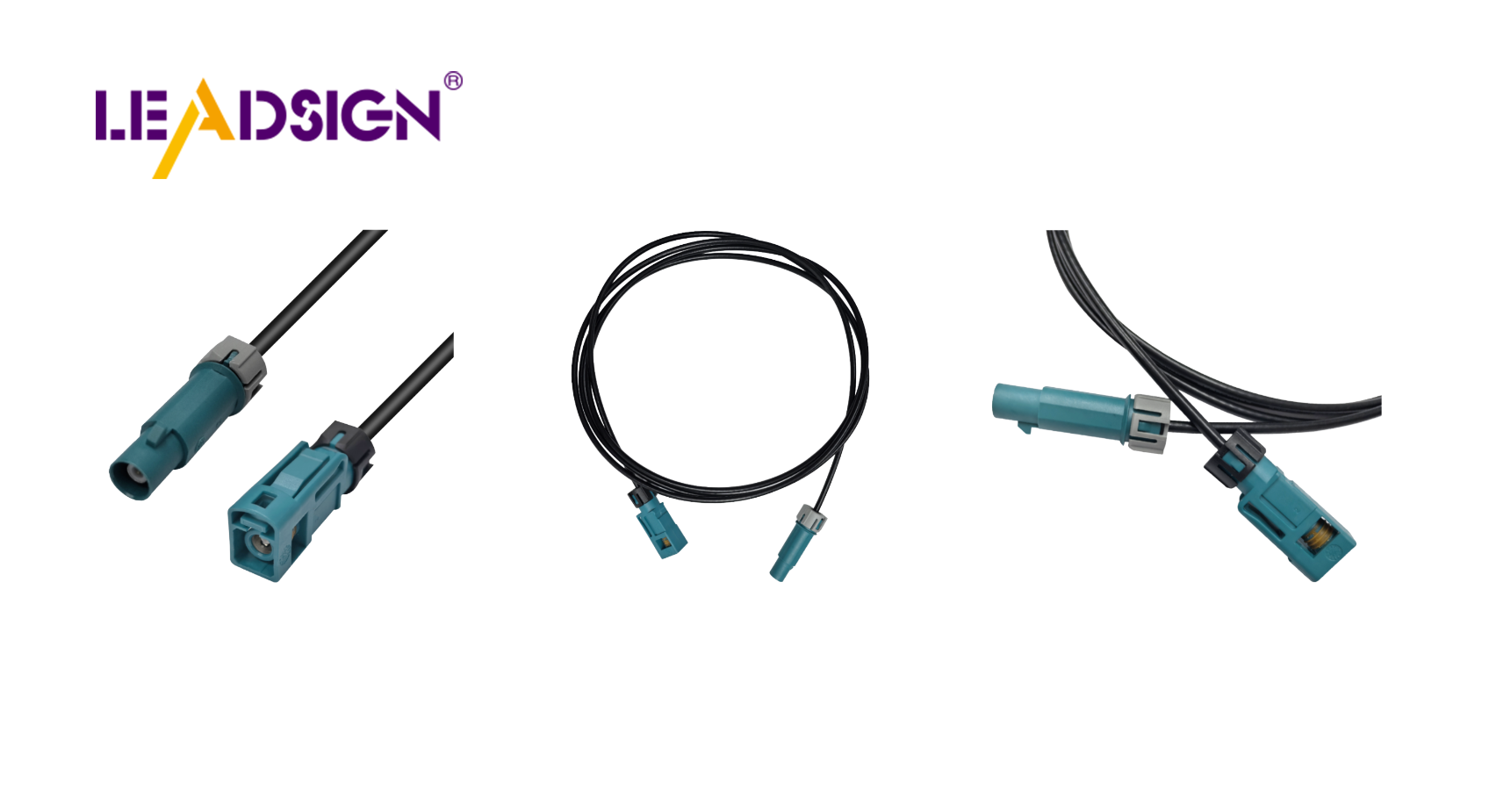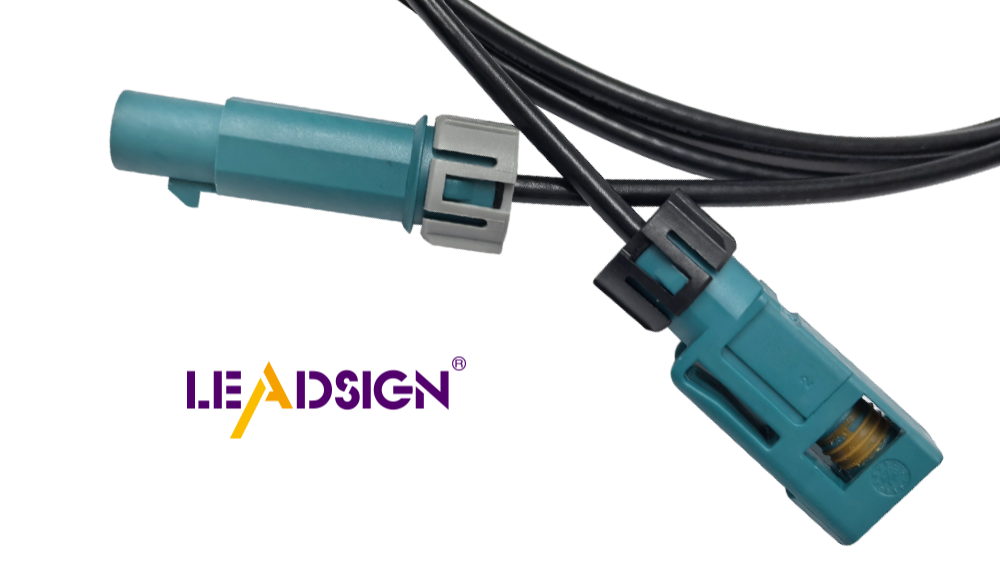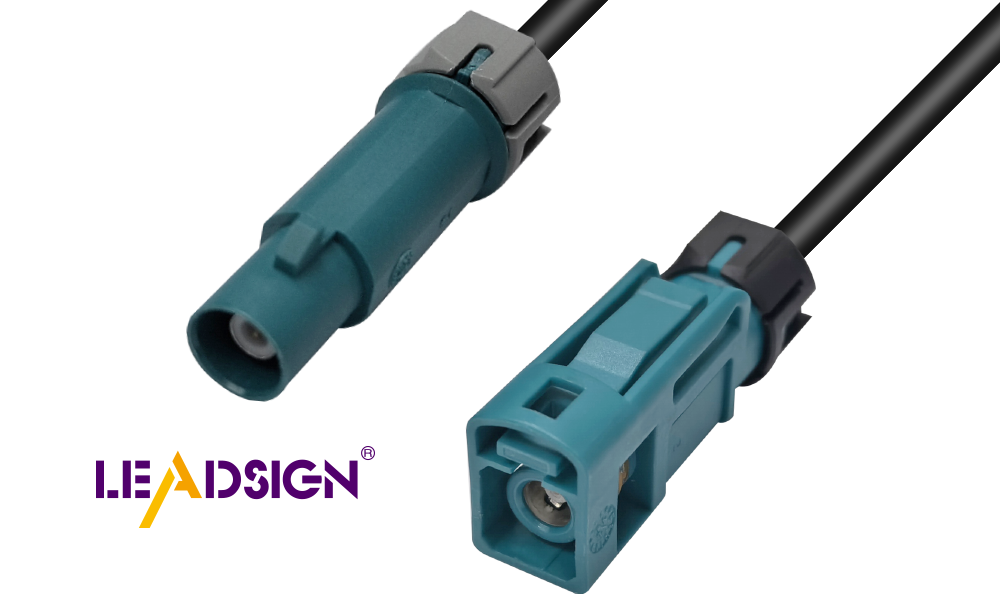Key Considerations for Choosing the Perfect Car Connector Plug

Choosing the best car connector plug matters a lot. It helps your car work well and stay safe. Picking the wrong one can cause issues like loose plugs, rust, or burnt parts. By checking fit, strength, and price early, you save trouble later.
Key Takeaways
Pick the right car plug to keep your car safe. Look at size, strength, and cost to avoid problems later.
Clean and check your car plugs often to stop dirt and rust. Easy care can help you save on fixing costs.
Use waterproof plugs to last in tough weather. This keeps your car's wires safe from water and rust.
Understanding Car Connector Plugs

What Are Car Connector Plugs?
Car connector plugs are small but very important parts. They link electrical systems in your car so power flows well. These plugs come in different shapes and sizes for specific jobs. For example, some power headlights, while others send data to GPS or sensors. They help run things like your stereo or engine controls. Without them, your car wouldn’t work smoothly.
Why Are They Important for Your Vehicle?
Car connector plugs are key to your car working right. They make sure electrical systems stay connected and share power or signals. This helps systems like the engine and sensors work together. Modern cars use more electronics, so good plugs are crucial. Without them, your car would have many problems.
Types of Car Connector Plugs
There are different kinds of car connector plugs for various uses. Common ones include pin connectors, blade connectors, and bullet connectors. Pin connectors are used for sensors, while blade connectors handle strong currents. Bullet connectors are quick and easy to use. Each type is made for a specific job to keep your car running well.
Key Factors to Think About
Does It Fit Your Car?
Make sure the plug fits your car's system. Not all plugs work with every car. Check these things to pick the right one:
Factor | What It Means |
|---|---|
The plug must handle your car's electricity to avoid problems. | |
Voltage rating | Match the plug's voltage to your car's system to stay safe. |
Number of contacts | Choose a plug with enough pins for now and later needs. |
Environmental conditions | Pick plugs that can handle moisture, heat, or cold in your car's environment. |
Mechanical factors | Get plugs with strong locks to stay secure during movement. |
Size and Power Capacity
The plug's size and power capacity are very important. A small plug might overheat, while a big one wastes space. Check the current and voltage ratings to match your car's needs. Also, think about how many pins it has. Modern cars often need high-density plugs for advanced systems.
What Is It Made Of?
The plug's material decides how long it lasts. Plastic plugs are light and good for daily use. Metal plugs are stronger and better for tough jobs. For a durable plug, pick one made from high-quality materials.
Price vs. Quality
Cheap plugs might save money now but break quickly. A good plug costs more but lasts longer. Spending more now can save repair costs later.
Easy to Install
Installing a plug should be simple. Problems like loose wires or rust can happen if done wrong. Pick a plug that's easy to set up and comes with clear directions.
Weather Protection
Cars face rain, heat, and dust, so plugs need to resist these. Look for plugs that are waterproof and dustproof. A plug with a good IP rating will last longer in tough weather.
Common Types of Automotive Electrical Connectors

Understanding car connectors helps keep your car running well. Here are some common types you might see.
OBD-II Connectors
Mechanics use OBD-II connectors to check car problems. These connectors, also called Diagnostic Link Connectors, connect to your car's system. They help find issues and monitor emissions.
You can find the OBD-II port under the driver’s dashboard. It may have 16, 6, or 9 pins. This connector makes repairs faster by using the same cable for data.
Trailer Connector Plugs
Trailer plugs are needed when towing. They connect your car’s system to the trailer. This ensures lights and signals work together.
Function | What It Does |
|---|---|
Running lights | Lights up the trailer for other drivers to see. |
Turn signals | Matches the car’s left and right turn signals. |
Brake lights | Lights up when the car’s brakes are used. |
Ground connection | Links the trailer’s electrical system to the car. |
These plugs make towing safer by syncing the trailer with your car.
USB and Charging Ports
USB ports in cars power devices like phones and GPS. They are safe for low-voltage power. These ports are great for long trips and staying connected.
FAKRA Connectors
FAKRA connectors help with wireless systems like GPS and Bluetooth. They send strong signals and are waterproof.
Feature/Use | What It Does |
|---|---|
Strong signal transmission | Keeps wireless systems working well. |
Waterproof design | Protects from water and keeps connections stable. |
Stops interference | Reduces problems from other electronics. |
Color-coded system | Helps connect the right wires for each use. |
These connectors are tough and easy to use for advanced car systems.
Weatherproof Connectors
Weatherproof connectors are made for tough conditions. They resist water, heat, and rust.
These connectors protect your car’s systems in bad weather. They are great for off-road or extreme environments.
Tips for Taking Care of Car Connector Systems
Clean and Check Often
Keeping car connectors clean is very important. Dirt can cause bad connections or damage. Follow these steps to care for them:
Wipe connectors often to remove dirt and dust.
Look for rust, cracks, or other damage regularly.
Use a small brush to clean hard-to-reach spots.
Add grease to stop rust and keep them working well.
Don’t tighten connectors too much to avoid breaking them.
Doing this will keep your connectors in good shape and save money on repairs.
Use Heat Shrink Tubing
Heat shrink tubing protects wires and connectors. It seals tightly to block water, dirt, and sunlight. This keeps wires safe from short circuits or harm. But once used, it’s hard to take off without damage. Be careful when using it to make sure your connectors stay safe for a long time.
Stop Water and Rust
Water and rust can ruin connectors. To avoid this:
Use waterproof connectors in wet areas.
Seal connectors well to keep water out.
Clean rusty connectors with a brush and add a rust-proof coating.
Check connectors often and replace broken ones quickly.
These tips will help your connectors last longer, even in bad weather.
Store Extra Plugs the Right Way
Storing extra plugs correctly saves time and money. Keep them in a dry, clean box to protect them. Label each plug so you can find the right one easily. This way, you’ll always have what you need when something breaks.
Picking the right car connector plug is very important. It helps your car work better and stay safe. Think about how well it fits, how strong it is, and the price. If you're not sure, follow these tips:
Check your car's manual for exact details.
Ask an expert to help install it correctly.
Doing this will save you effort, money, and problems later.
FAQ
What happens if I pick the wrong car plug?
The wrong plug can cause loose wires or overheating. It might even break your car's system. Always check your car manual to find the right plug.
How can I tell if a plug is waterproof?
Check for an IP rating on the plug. For example, IP67 means it blocks dust and handles water for a short time. Waterproof plugs are best for tough weather. 🌧️
Can I put in a car plug myself?
Yes, you can if you follow the steps closely. But for tricky systems, ask an expert to avoid problems or damage.
See Also
Why Fakra Connectors Matter in Today's Vehicles
Uncovering the Advantages of Fakra Connectors
Significance of Fakra Connectors in Auto Manufacturing

